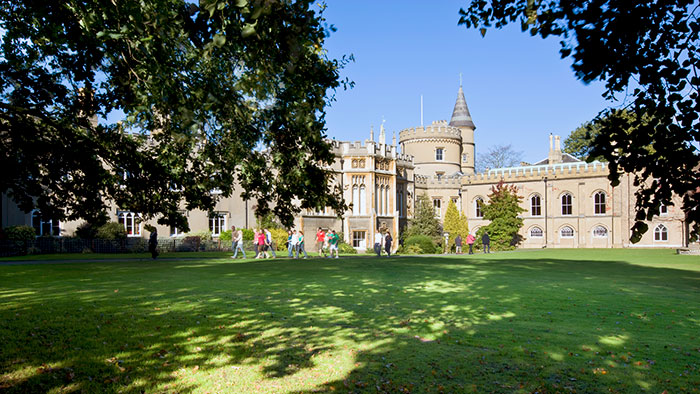It will come as no surprise that one of the foremost issues concerning university vice-chancellors at the moment is the UK’s impending exit from the EU.
Our world-class higher education system generates £95 billion for our economy and supports more than 940,000 jobs across the country, according to Universities UK. As the second most popular destination for overseas students after the US, the international mobility of students and staff has been an important factor in that success.
Yet at the moment, there is significant uncertainty about how the current relatively fluid framework might be restricted by changes to immigration rules resulting from Brexit. Recent UCAS figures showing a drop in the number of applications from students in EU countries have been flagged by some as a cause for concern.
UK universities currently welcome staff and students from all over the world, and being able to attract the brightest from across the globe is crucial if we are to continue to enjoy not only the academic and cultural benefits they bring to our institutions, but also the estimated £25 billion boost they provide to our economy.
The prospect of new restrictions on freedom of movement is therefore a critical issue. At my own institution, St Mary’s University in Twickenham, London, we have always had a strong Irish presence among our student body. That is a legacy of our historic origins as a Catholic teacher training college founded in 1850. Since then, we have developed into a fully-fledged university offering a wide range of courses with a diverse staff and student community. But our Irish connection remains important.
UK universities currently welcome staff and students from all over the world
We want that to continue and hope that the various commitments that have been made to maintaining the Common Travel Area between Ireland and Britain will be realised.
But we also welcome students from further afield and for that reason, like other universities across Britain, we are eagerly waiting to see how the terms of Brexit will unfold. It is welcome that the UK government has given reassurance in the short term to those starting courses in the 2018/19 academic year that they will have the right to remain in the UK and home fee status for the duration of their course. However, plans for the higher education sector in the longer-term remain to be seen.
Concerns are also being raised about the UK’s continued participation in EU research collaboration. Universities UK has rightly called for clarity to be given on the UK’s long term participation in Horizon 2020 (an important EU programme and funding stream for research and innovation) as a matter of urgency. The UK benefits enormously from this – it allows researchers access to world-leading facilities and to collaborate with world-leading experts on life-changing research, the results of which benefit the economy and society more widely.
The challenges posed by Brexit compound other pressures that the higher education sector was already facing as a result of changes that have made the system more competitive, notably the removal of the government’s cap on student numbers. This means that universities must work harder than ever to attract applicants as students are quite rightly looking at courses on offer with a greater degree of scrutiny.
Universities must work harder than ever to attract applicants as students are quite rightly looking at courses on offer with a greater degree of scrutiny
The Higher Education Funding Council for England warned last year that levels of competition and the subsequent income fluctuation and increased borrowing could prove to be unsustainable for many universities and I think we are already beginning to see the impact of this.
But while increased competition presents higher education institutions with some serious challenges, it is also producing some important benefits. It has arguably helped facilitate a rise in the number of students from disadvantaged areas who go onto university and the wider implications of this for social mobility and inequality are extremely positive. The tougher environment means universities are continually striving to up our game and as a consequence the quality of what we offer to students is improving.
We have certainly entered a new phase in the higher education sector, and while universities navigating these challenges and increased competition will require innovative solutions to remain sustainable for the future, students can still look forward to a positive and fruitful learning experience.
Francis Campbell is the Vice-Chancellor of St Mary’s University, Twickenham, London.







